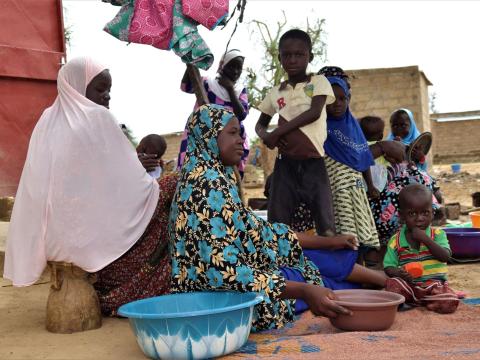Conflict and displacement have crippled Burkina Faso’s healthcare system, leaving millions without access to essential medical services in 2025.
Healthcare on the Brink: Conflict Leaves Burkina Faso’s Medical System in Crisis
Ouagadougou, Burkina Faso – Burkina Faso’s healthcare system is on the verge of collapse as conflict, displacement, and lack of funding overwhelm already fragile infrastructure. Health workers, international agencies, and local communities warn of a looming public health disaster unless urgent action is taken.
Over 50% of Health Facilities Non-Functional in Conflict Zones
According to the World Health Organization (WHO), more than half of all health facilities in conflict-affected regions are either non-functional or operating at severely reduced capacity. Armed attacks, looting, and the occupation of clinics by non-state armed groups have made it nearly impossible for people to access basic medical care.
In the Sahel, Centre-Nord, and Est regions, patients often travel hours—sometimes days—to reach the nearest open facility.
Critical Shortages of Medicine, Staff, and Equipment
Burkina Faso’s Ministry of Health reports massive shortages of essential medicines, vaccines, and medical equipment. Health workers are also fleeing violence, leading to dangerous staffing gaps, especially in rural clinics.
Maternal and child health services are among the hardest hit. Thousands of women are giving birth without skilled assistance, increasing the risk of complications and death.
Vaccination campaigns have also stalled in several regions, raising fears of outbreaks of preventable diseases like measles and polio.
Malnutrition and Disease on the Rise
The collapse of health services comes as malnutrition and waterborne diseases are on the rise. In displacement sites, overcrowding, poor sanitation, and limited access to clean water are triggering spikes in diarrheal diseases and respiratory infections.
The World Food Programme warns that more than 630,000 children under five are at risk of acute malnutrition in 2025.
International Aid Struggling to Keep Up
While organizations like Médecins Sans Frontières (MSF), the International Red Cross, and WHO continue to operate in high-risk areas, they face major logistical and security hurdles. Funding shortages have forced many projects to scale back or close entirely.
Donor fatigue, combined with the global focus on other crises, has made it harder to mobilize international support for Burkina Faso.
Conclusion
Burkina Faso’s healthcare crisis is a humanitarian emergency that demands immediate global attention. Without safe access, stable funding, and long-term planning, millions will remain without the care they need—deepening the suffering of already vulnerable populations.
Tags: Burkina Faso health crisis, conflict and healthcare, WHO Burkina Faso, displaced people Africa, maternal health Sahel, malnutrition West Africa, Africa humanitarian news


Enviar um comentário